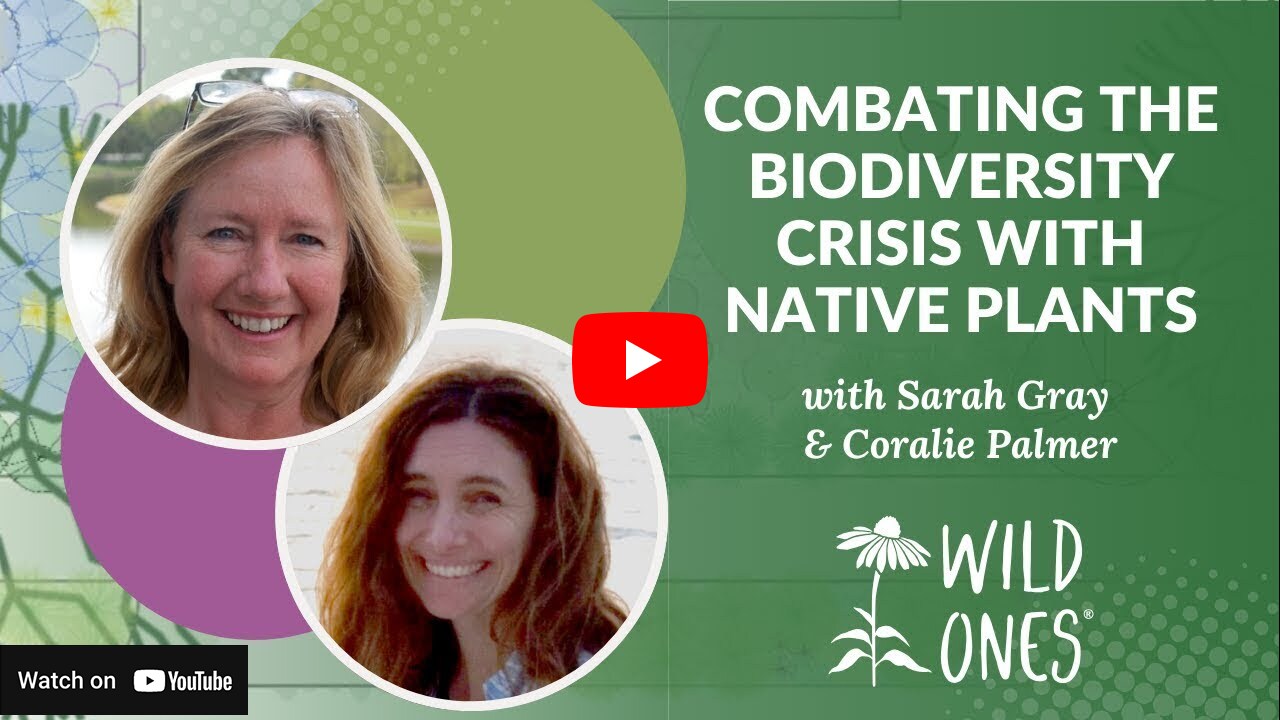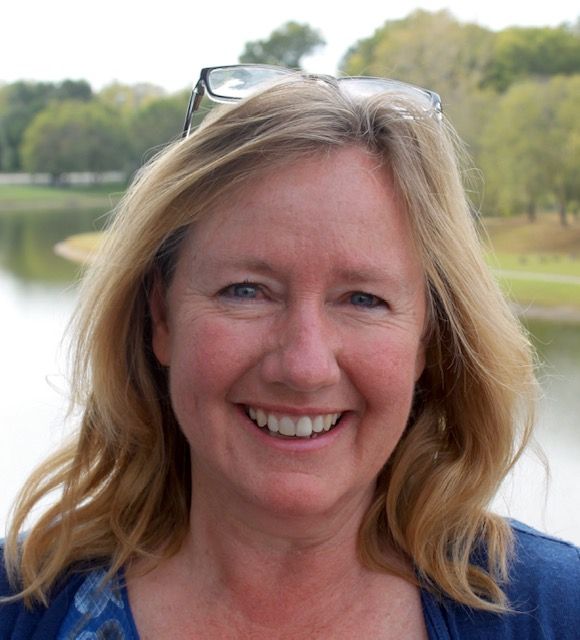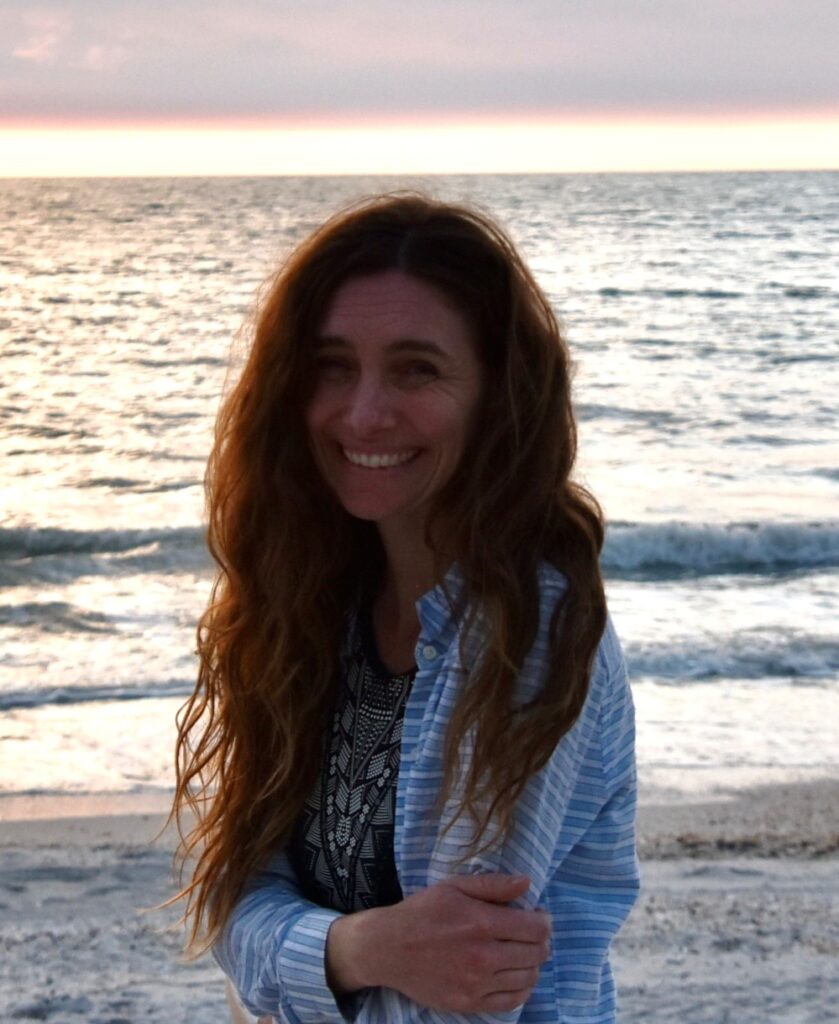Explore how native plants can enhance biodiversity and support ecosystems in our upcoming Wild Ones national webinar, “Combating the Biodiversity Crisis with Native Plants” featuring Sarah Gray and Coralie Palmer from the Indiana Native Plant Society.

Native plants are essential for maintaining biodiversity as they provide food and shelter for a wide range of wildlife, including pollinators, birds, and beneficial insects. By incorporating native plants into your landscape, you can create a thriving ecosystem that supports local fauna and flora. These plants are well-adapted to local environmental conditions, making them more resilient to climate change and reducing the need for chemical fertilizers and pesticides. Attendees will learn how native plants can improve soil health, enhance water retention, and contribute to a more sustainable and vibrant ecosystem.
Sarah and Coralie are part of the Indiana Native Plant Society (INPS) Landscaping team, and they have collaborated on diverse projects across Indiana, including native planting schemes for schools, community gardens, the Eiteljorg Museum, and the Humane Society. Their new design for Indianapolis reflects typical sub-divisions in Indiana and considers future climate challenges, such as increased flooding and hotter, drier summers. The design features resilient, native Indiana plants that thrive in local soil conditions and contribute to the ecosystem.
Don’t miss this opportunity to gain insights from leading experts in native plants! Participants will gain practical insights into native garden designs and learn how tailored landscaping can support wildlife, promote ecological balance, and help restore natural habitats.
About the Presenters
As part of the INPS Landscaping team Coralie and Sarah have collaborated on diverse landscaping projects across Indiana, including designing native planting schemes for schools and community gardens, the Eiteljorg Museum and the Humane Society.


Sarah Gray was born and raised in New Zealand, Sarah cultivated a deep appreciation for nature from her earliest years. Her academic background in Environmental Biology and Entomology, and her passion for the natural world laid the foundation for a career in landscape design and a business creating gardens across England, France, and the United States. Since moving to Indiana 18 years ago she has become a vocal advocate for native plant landscaping, recognizing its ecological benefits and aesthetic potential. Promoting native plants extends beyond her design practice as she actively participates in the Indiana Native Plant Society (INPS), particularly within the Landscaping with Natives team. Through this involvement, she contributes to educational initiatives, giving talks on “replacing invasive plant species with native species” and “how homeowners can enhance their landscape for both human enjoyment and wildlife habitat conservation”.

Coralie Palmer is originally from London, Coralie has lived in India and Australia, and for over a decade has been thankful to call Indiana home. Coralie has Bachelor’s and Master’s Degrees in Biological Sciences from Oxford University with a focus on botany, zoology and ecology, and a background in conservation, environmental education and landscape design. Working for the Environmental Justice Foundation in London she focused on wetland conservation, publishing research from Bangladesh and Vietnam. Since moving to Indiana, studying the native plants and the ecology of the Midwest has become a passion. Coralie is the founder of Sugarbush Ecological Landscapes, working to connect landscaping and ecology to support and restore healthy, biodiverse ecosystems, and to increase access to functional healthy ecosystems for all people. Coralie is President of the Indiana Native Plant Society (INPS) and serves on the Board of Directors for the Indiana Wildlife Federation (IWF). She loves spending time traveling with her husband and three boys, visiting National Parks in the U.S. and is constantly inspired by the beautiful gardens close to her family home by the sea in Cornwall, England.
